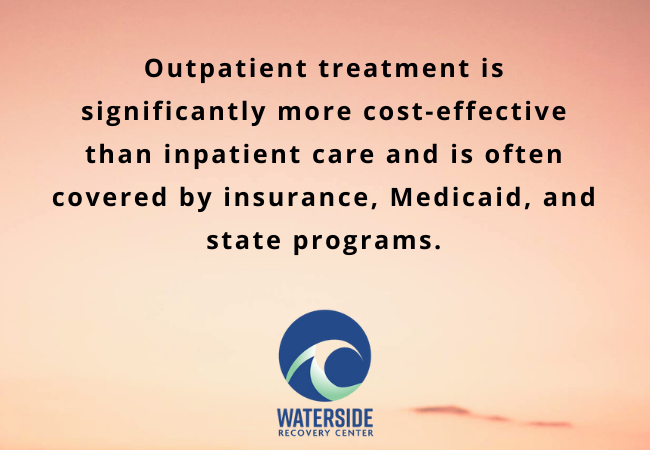For many individuals seeking recovery from substance use or mental health challenges, outpatient treatment offers the ideal balance between structure and flexibility. Unlike residential care, outpatient programs allow participants to continue living at home, maintain family responsibilities, and in many cases, stay engaged with work or education. But navigating the demands of daily life while committing to healing can also be uniquely challenging.
Balancing life with outpatient treatment is not about being perfect—it’s about building routines, communication habits, and internal resilience that support your recovery while honoring your real-world responsibilities. Whether you’re new to the process or deep in your healing journey, there are practical ways to ensure your treatment integrates smoothly with your everyday life.
Understanding the Role of Outpatient Treatment in Daily Life
Outpatient care spans a spectrum of intensity and time commitment. Some individuals may only need a few therapy sessions each week, while others may participate in more structured programming. For instance, a Day Treatment Program in Massachusetts often includes several hours of therapy and therapeutic activities per day but allows participants to return home afterward. This model can be ideal for those needing substantial clinical support while still managing home life or work.
Outpatient treatment, when approached with intention, can be deeply empowering. It teaches individuals how to navigate real-life situations with the tools learned in therapy, encouraging long-term success rather than temporary relief. However, to make the most of outpatient care, patients must actively create balance—setting boundaries, managing stress, and prioritizing their health even when life gets hectic.
Setting a Structured Daily Routine
Structure is one of the most effective tools in outpatient recovery. Without the 24/7 support of inpatient care, it’s easy to become overwhelmed or fall into old habits. Creating a consistent daily routine can help stabilize your mood, conserve mental energy, and support positive habits.
Start by identifying your non-negotiables. These may include therapy sessions, medication management, childcare, work shifts, or classes. Once those are mapped out, build in time for meals, exercise, rest, and recreational activities. It’s also crucial to schedule time for transportation to and from appointments, especially if you’re participating in an Afternoon Treatment Program in Massachusetts, where sessions may fall in the middle of your workday.
Remember, flexibility doesn’t mean lack of structure. It means you have choices—but making those choices in a way that protects your recovery will be a key to success.
Communicating with Employers, Schools, and Loved Ones
One of the greatest hurdles for individuals in outpatient care is navigating how much to share with others. You may wonder if you should tell your employer, school administrators, or family members about your treatment. The answer depends on your comfort level, but clear communication—when appropriate—can ease scheduling conflicts and emotional strain.
If you’re working while in treatment, consider speaking with HR or a supervisor about adjusted hours or modified responsibilities. Some employers offer Employee Assistance Programs (EAPs) that support mental health and addiction recovery. Similarly, students can work with academic advisors to create flexible plans. In both cases, having documentation from your provider at an Addiction Treatment Center in Massachusetts can assist in arranging accommodations.
At home, it’s just as important to communicate. Letting your loved ones know your schedule and emotional needs helps reduce misunderstandings and gives them an opportunity to support you in meaningful ways.
Managing Energy, Not Just Time
Balancing daily life with treatment isn’t just a matter of time—it’s a matter of energy. Outpatient care can be emotionally demanding. Therapy often brings up difficult topics, emotional patterns, and behavioral changes that require processing.
Planning recovery time into your schedule—moments to reflect, decompress, or simply rest—will help prevent burnout. For example, if you’re attending a Partial Hospitalization Program in Massachusetts, you may need quiet time afterward to emotionally recalibrate before jumping back into parenting or work duties.
It’s also helpful to build in small coping tools that can be used throughout the day: breathwork, grounding exercises, or short walks can make transitions smoother and help keep stress levels manageable.
Leaning on Your Support System
Outpatient treatment doesn’t mean you’re going it alone. In fact, building a strong support network outside of therapy sessions is crucial. Whether it’s a sponsor, peer recovery group, trusted friend, or family member, having someone to talk to can be a game-changer during stressful moments.
If you’re enrolled in one of the many Addiction Therapy Programs in Massachusetts, your care team can help you identify and strengthen these support systems. They may also introduce you to local or virtual peer support groups, where you can share experiences with others navigating similar paths.
In moments of doubt or stress, these relationships become the lifeline that keeps you moving forward. Don’t hesitate to ask for help—whether it’s a ride to treatment, help with meals, or just someone to sit with you after a tough session.
Prioritizing Self-Care and Boundaries
Self-care is not a luxury—it’s a foundation of sustainable recovery. Especially during outpatient treatment, where external responsibilities can quickly become overwhelming, maintaining your mental and physical well-being must remain a priority.
This includes the basics: sleep, hydration, nutrition, and movement. But it also includes setting emotional boundaries—learning to say “no” when something threatens your peace, even if that means disappointing others.
Your care plan at an Outpatient Treatment Program in Massachusetts may include skill-building in areas like emotional regulation, assertiveness, and mindfulness. Take these lessons seriously. The more you protect your mental space, the more room you have to grow and heal.

Celebrating Progress and Staying Motivated
Recovery is not linear. Some days will feel easy and inspiring, others will feel frustrating or stagnant. It’s important to celebrate even the small wins—showing up for treatment, setting a boundary, managing a craving, or simply having a better day.
Creating a visual reminder of your progress can be helpful: journaling, tracking milestones, or sharing reflections with your therapist. Keeping a success list, rather than just focusing on to-dos, can reinforce a sense of capability and confidence.
If you’re ever feeling stuck, revisit the reasons you began this journey. The insights gained from treatment, especially in a well-structured setting like a Day Treatment Program in Massachusetts, will continue to guide you long after formal care ends.
Real-World Integration of Therapeutic Skills
One of the biggest advantages of outpatient care is the opportunity to apply therapeutic skills in real time. Whether you’re learning communication strategies, emotional processing techniques, or relapse prevention tools, you can immediately begin testing them in real-world settings.
Programs like an Afternoon Treatment Program in Massachusetts are often designed to account for this reality—providing structure and support during the times of day when challenges may be most intense, such as post-work stress or social triggers.
Keeping a record of how you apply these skills in everyday situations not only reinforces your learning but also helps your clinical team tailor your treatment to better suit your life. Over time, these tools stop feeling like “therapy homework” and start becoming second nature.
Why Choose Waterside Recovery Center?
At Waterside Recovery Center, we understand the unique challenges that come with balancing outpatient treatment and daily life. That’s why our programs are designed with flexibility, empathy, and results in mind. Our clinical team works alongside each individual to develop a personalized care plan that respects both your treatment goals and your personal commitments.
Whether you’re participating in our structured Outpatient Treatment Program in Massachusetts or stepping into a more intensive day or partial hospitalization format, you’ll receive expert care that aligns with your lifestyle—not the other way around.
With a multidisciplinary team of therapists, case managers, and addiction specialists, we don’t just help you recover—we help you rebuild a life you’re excited to live.
Conclusion
Balancing outpatient treatment with everyday responsibilities is never a one-size-fits-all experience. It takes intention, support, and a willingness to prioritize healing even when life is busy. But with the right strategies, structure, and care, you don’t have to choose between your recovery and your responsibilities—you can thrive in both.
At Waterside Recovery Center, we’re here to walk that path with you. Our programs—from day and afternoon offerings to full Partial Hospitalization Program in Massachusetts options—are designed to meet you where you are and grow with you as your needs evolve.
Recovery isn’t about stepping away from life—it’s about learning how to live fully, with clarity, balance, and purpose. If you’re ready to explore a path that supports your healing while honoring your commitments, contact Waterside Recovery Center today at (866) 651-8620. Let’s build a plan that fits your life—and your future.
Frequently Asked Questions (FAQs)
What is outpatient treatment and how does it differ from inpatient care?
Outpatient treatment allows individuals to receive structured support while continuing to live at home and manage personal responsibilities. It’s more flexible than inpatient care and suited for those with stable home environments.
Can I continue working or going to school during outpatient treatment?
Yes, most outpatient programs—including afternoon and evening sessions—are designed to accommodate work or school schedules. It’s important to create a balance that doesn’t overwhelm you.
What support systems should I have in place while in outpatient care?
Family, friends, peer support groups, and your clinical team all play key roles. Waterside Recovery Center can also help you build a support network if you don’t already have one.
Is outpatient care enough for addiction recovery?
For many, yes. Outpatient treatment works well for those with mild to moderate symptoms or as a step-down from more intensive care like residential or PHP programs.
What are the benefits of a Partial Hospitalization Program (PHP)?
PHPs offer intensive care during the day while allowing you to return home each evening. This structure combines clinical oversight with personal independence.
How do I manage parenting responsibilities while in treatment?
Flexible scheduling and support from loved ones or childcare services can make it possible. Many parents in recovery find outpatient care to be a great fit for their family lives.
How do I know which level of outpatient treatment is right for me?
After an initial assessment, professionals at Waterside Recovery Center can help you determine whether a Day Treatment Program, Afternoon Treatment Program, or Partial Hospitalization Program is best suited to your needs.


